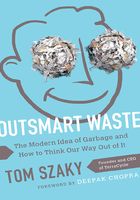
We Are in the Service of Consumerism
Any economist will agree that consumerism is essential for capitalism to survive. For our standard of living to increase, not only must consumers buy but they must buy more every year. Without perpetual and growing consumption, the economy declines, and decline begets more decline. The conventional sign of a healthy national economy is, after all, measured by gross national product, a measure of the quantity of goods and services people consume.
So are we all in the service of consumerism? Today I would argue yes. Most jobs in the world serve to facilitate consumerism. From factory workers in China and sales associates at your local department store, to most lawyers, accountants, and real estate agents, the list of professions that facilitate consumerism in some way is a long one. Like our friend the diabetic mouse, gorging himself on that pile of sugar, humans can’t help but consume, and there are many repercussions of growing consumerism. From health problems like obesity and diabetes to environmental problems like global warming and growing landfills, rising consumerism leaves an increasingly large mark on us and on our planet.
But consumerism isn’t all bad. It drives innovation, which typically increases our standard of living. Just think of how many people have access to a flushing toilet and a mobile phone today. Now ubiquitous in many nations, even the wealthiest people could only dream about these luxuries a century ago.
So the answer to outsmarting waste must contain within it a serious conversation about controlling our consumerism. Over the long term, we need to ask the question of whether driving happiness through consumerism is sustainable. In the short term and as individuals, we can make important changes by consuming consciously.